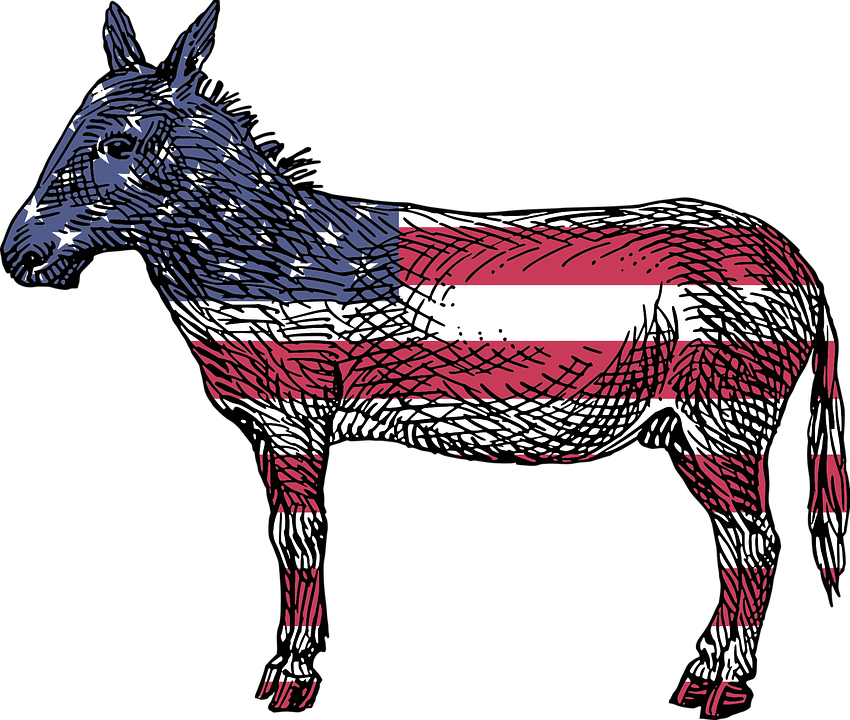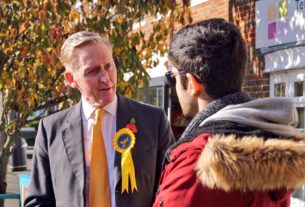Announced Candidates
Elizabeth Warren | Chance of victory: 6/10
Of those already declared, Elizabeth Warren is the most likely to go the distance and sit at the top of the ticket in 2020. The bankruptcy law specialist has been in Congress since 2013 and has a reputation for taking on the big banks and corporations who are exploiting the American people; being instrumental of setting up the Consumer Financial Protection Bureau early in Obama’s presidency.
This has gained her great popularity amongst the progressive wing of the party, placing her behind only Bernie Sanders in the hearts of most the left. On the other hand, her biggest problem is likely to be the Democratic National Committee failing to back her due to her record of taking on the very donor class that prop up the party machine – this will not be to her detriment amongst primary voters, however.
Richard Ojeda | Chance of victory: 2/10
The former US Army Major gained national attention taking on Carol Miller in West Virginia’s third district, coming mightily close to victory (despite being in one of the nation’s most Republican districts). In the previous election the Democrats lost by 68-24, with Ojeda achieving a 32-point swing in the Democrats’ favour.
His aggressive style and populist tough talk has gained him much praise, despite defeat and he has continued to have popularity post-election. Certainly, considered a rough diamond, Ojeda is unlikely to get close to the Democratic ticket – the party won’t back him – but a strong campaign pushing his progressive ideals and anti-corporate agenda should improve his name recognition and allow him to launch another bid for Congress.
Julian Castro | Chance of victory: 3/10
The former Obama cabinet member – preceding Ben Carson as Secretary of Housing and Urban Development – has long been suggesting a run but has yet to be considered a serious candidate. A Spanish speaking Texan, he ticks many of the boxes for identity voters, but struggles beyond that.
Now serving as Mayor of San Antonio, he lacks much recognition outside of his local counties and is unlikely to make any kind of ripple in the primary, never mind a wave that would carry him to victory. Possibly a candidate for the future but without national recognition he will fall away before the race even kicks off.
John Delaney | Chance of Victory: 1/10
The first reaction for many reading this is likely to be ‘who?’ The representative from Maryland’s sixth district is not particularly known except amongst politicos and Marylanders. He is unlikely to get much support from the Democratic Party machine, facing up against bigger names (whom we shall talk about later).
His biggest asset is perhaps his business career, with a track record of investing in small and marginalised communities, helping to provide needed development, although his closeness to Wall Street and past stock market links may not sit well with the very voters he is most likely to gain support amongst. Think about Martin O’Malley in 2016.
Kamala Harris | Chance of victory: 8/10
Perhaps the front runner in most political circles, Harris is certainly a talented and an incredibly strong candidate, likely to tick most of the boxes for the DNC – as well as gain some grassroots support. Although unlikely to get as much support from the progressive wing of the party as Bernie Sanders or Elizabeth Warren, her turning down of super PAC funding is going to gain her credibility amongst these voters.
Her best chance of success is being the DNC pick. Being a black woman, Harris is the perfect candidate to tick the identity politics box that the party leadership commonly favours, meaning it is likely that she could be the anointed candidate as Clinton was in 2016. A relatively progressive record in Congress coupled with non-committal on major progressive issues, this positions her as a potentially popular candidate for both progressives – should the major names struggle – but moderate enough to gain the backing of the DNC. Harris could either crash and burn, or ride on an Obama style tidal wave to victory.
“Expect Bernie Sanders, Elizabeth Warren or Kamala Harris as the Democratic nominee in 2020.”
The Soon to Declare
Bernie Sanders | Chance of victory: 8/10
Undoubtedly amongst the front runners after a strong primary challenge against the heavily backed Hillary Clinton in 2016. Going from almost zero support he managed to develop perhaps the most successful grassroots campaign in American history.
Now still the most popular politician in America, Bernie is expected to announce his candidacy soon. With unwavering support amongst the progressive wing of the party, he is almost certain to take the nomination if the primary is a fair fight. But as in 2016 it is likely that he will be against a tidal wave of opposition from the DNC. Arguably justified by his refusal to officially become a Democrat, his chances will rest on being given a fair shot.
Cory Booker | Chance of victory: 4/10
It has been clear from the moment Booker stepped into Washington that he has eyes for only one thing: the Oval Office. It is hard to see any of his actions while in office as anything other than positioning, made explicitly clear by his bravado in Senate hearings over the past year. He is popular with the party but so are many other candidates. His positioning, however, has made him appear disingenuous to progressives and grassroots primary voters.
Booker is supposedly being urged to run by former president Jimmy Carter, which is the sort of endorsement that could really make a campaign fly, but he doesn’t enthuse voters. President Trump currently has a +1 lead over Booker and with less support amongst Democratic voters than most other major candidates, Booker will get nowhere. If his whole career has been geared towards a run, he should perhaps wait another 4 to 8 years, work on his aloof persona and then maybe give it a shot.
Touted to Run
Joe Biden | Chance of victory: 4/10
Ever popular since his spell as Vice President, Biden has long been tipped to run. However, this would be a mistake. Although extremely popular, Biden is likely to get lost up in a flurry of ‘establishment’ candidates that run every time. Although likely to be prominent within the DNC, he is very likely to struggle when it comes to grassroots support which will make it hard for the DNC to back him against candidate who command more support in this demographic.
His legacy of success in the Obama White House and his years of Congressional service should leave him a favourable place in history, a failed presidential bid could undermine this.
Beto O’Rourke | Chance of victory: 1/10
Beto gained much national attention after running Ted Cruz close in the 2018 Senate race in Texas. Despite not being successful, he has been hailed as the new Obama: a young, charismatic leader full of ambition and potential. Unfortunately, Beto has disappointed many of the progressives who were the backbone of his support in Texas, pivoting away from progressive issues in the latter stages of the campaign (arguably costing him a Senate seat), whilst accepting large donations from major executives in the increasingly unpopular oil industry.
His grassroots support has practically vanished ever since, and while he remains popular with the DNC, being a southern Democrat, he will get lost in the plethora of candidates running in this cycle.
Alexandria Occasio-Cortez | Chance of victory: 0/10
One of the most popular politicians in the country, nobody is more authentic than ‘AOC’. Young, charismatic and intelligent: she would make a fantastic candidate, but not today. At 29 years old she is not constitutionally allowed to contest for the next two cycles, preventing any possibility of candidacy.
Additionally, she has not even been in the House for a month, let her get experience in Washington and create a track record of excellence in fighting for (and achieving) progressive ideals. Do this, and then she will make a fine president one day.

It is unlikely that any one candidate will lead throughout as Hillary Clinton did last time around
The 2020 democratic primary is undoubtedly going to provide an interesting contest. With a field of candidates almost certain to number in the teens, it is unlikely that any one candidate will lead throughout as Clinton did last time around.
The challenged for most candidates is likely to be standing out from the crowd, perhaps leading to a widening ideological spectrum, as each competes to gain support. Think of the republicans in 2016, trying to out-right-wing each other, whilst others pitched themselves as the sensible ‘moderate’ option, 2020 is likely to be the same for the Democrats.
Although the outcome is tough to predict, this sort of primary is always likely to lend itself to the populist candidates. Amongst a crowded field, the one that appears as though they are listening to the voters the most and providing solutions to major problems will most likely snatch victory.
Expect Bernie Sanders, Elizabeth Warren or Kamala Harris as the Democratic nominee in 2020.
_____________________________________________________________________________
Calum Paton is a History and Politics student at the University of Warwick. His writing focuses on American and British politics. Twitter: @Paton_Calum




